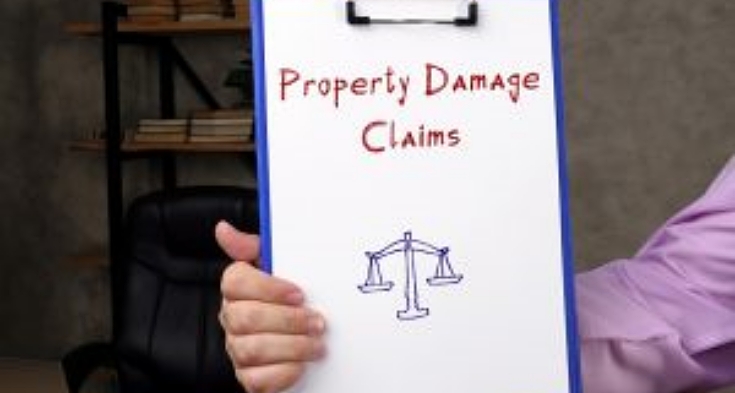
If you’re a Florida health‑care provider or clinic operator, hearing about a DOH Cease‑and‑Desist Notice can be deeply unsettling. At Elevate Legal Services, PLLC, we understand these notices aren’t just administrative paperwork, they can threaten your license, reputation, and practice. We’re a Boca Raton law firm that specializes in defending health‑care professionals in Florida against DOH violation administrative complaints and administrative law hearings.
We are here to help you safeguard your practice. Call us now at 561‑770‑3335 or email [email protected] to connect with seasoned counsel at Elevate Legal Services, PLLC, and learn how to protect your license and future.
From the moment you receive a cease‑and‑desist notice, time and actions matter. In this guide, we’ll explain:
- What exactly does a Florida DOH Cease‑and‑Desist Notice mean under Florida Statutes §456.065?
- Why DOH issues them, especially in the context of the Unlicensed Activity (ULA) Program,
- What triggers these notices, particularly in healthcare settings,
- The legal consequences if ignored, and
- Strategic steps you or your practice can take immediately to respond, remediate, and, if needed, contest the matter.
What Is a Florida DOH Cease-and-Desist Notice?
Under Florida Statutes §456.065, the Florida Department of Health is empowered to issue a Notice to Cease and Desist when it has probable cause to believe someone is practicing a regulated health‑care profession without a valid, active Florida license or is aiding unlicensed practice by others. This can include anyone “holding out” services via advertising or websites.
The notice is an official order to stop immediately, but it is not a final agency action that automatically triggers a hearing under Chapters 120.569 or 120.57. However, if the notice is ignored, DOH can escalate enforcement through citations, injunctions, or even civil or criminal litigation. This means that a Cease‑and‑Desist Notice should never be treated as a mere formality. While it doesn’t immediately invoke formal hearings, it serves as a legal warning: continued violation can result in per-day penalties, administrative fines up to $5,000 per incident, and possible criminal referral.
Why DOH Issues These Notices—Inside the ULA Program
The impetus behind these notices is Florida’s broad commitment to safeguarding residents and visitors from harm caused by unlicensed practitioners, who often have no verified education or training. The DOH’s Unlicensed Activity (ULA) Program investigates tips and complaints, conducts surveillance or undercover operations, gathers evidence, and may serve Cease‑and‑Desist Notices, issue citations, or refer for arrest.
For example, in a single fiscal year (2015–2016), MQA (Medical Quality Assurance, part of DOH) received over 1,400 complaints and issued 628 Cease‑and‑Desist orders.
Complaints can come through the DOH’s website or by calling 1‑877‑HALT‑ULA. Once an allegation is deemed legally sufficient, a ULA investigator conducts interviews, examines documentation, and might coordinate with law enforcement to pursue enforcement actions.

Common Triggers: When Health Professionals Receive These Notices
Several scenarios commonly result in Cease‑and‑Desist Notices, especially for Florida health‑care professionals:
- Practicing with an expired, inactive, delinquent, or otherwise invalid license. Even unintended lapses are violations.
- Advertising or “holding out” services without proper licensures includes website listings, business cards, signage, and social posts.
- Assisting or employing someone who is unlicensed owners or supervisors may be held liable for aiding unlicensed practice.
- Operating without facility-level licensure (e.g., a massage therapy practice without a massage establishment license) or offering services by unlicensed staff.
- Providing telehealth services in Florida without the appropriate Florida licensure or Out-of-State Telehealth Provider Registration.
Beyond these, some investigations are triggered by tip lines, proactive “sweep” enforcement operations, or even random surveillance.
Legal Risk Landscape: Penalties & Consequences
Ignoring a Cease‑and‑Desist Notice can lead to severe outcomes:
- Administrative Citations: Fines from $500 up to $5,000 per incident, with each day of continued violation treated as a separate offense. If not disputed in 30 days, the citation becomes a binding final order. DOH may also recover investigation and attorney’s fees.
- Civil Penalties: DOH may pursue penalties in circuit court (same range: $500 to $5,000 per offense), plus court costs and attorneys’ fees.
- Criminal Charges:
- Third-degree felony for practicing, offering to practice, or holding out without a valid active license, with a mandatory minimum $1,000 fine and one year in prison.
- Second-degree felony if practicing without a license result in serious bodily injury, also carrying severe penalties.
- If a license is inactive or delinquent for up to 12 months, it’s a first-degree misdemeanor; if 12+ months, it’s a third-degree felony.
- Injunctions or Writs of Mandamus: DOH may go to court to force you to stop or compel specific action.
These penalties demonstrate that a Cease‑and‑Desist Notice is not a technicality, but rather, the opening step in a potentially costly enforcement or criminal process.
How to Respond: Proactive Defense & Best Practices
From our experience at Elevate Legal Services, PLLC, we recommend the following carefully calibrated response strategy:
1. Pause Activities Immediately
Stop all work tied to the alleged violation. If a staff member or specific service is cited, halt that activity immediately, even before consulting counsel. This interrupts per‐day penalties and shows good faith.
2. Review the Notice in Detail
Carefully analyze the cited statutes, dates, activities, and deadlines. Look for any ambiguity or factual errors.
3. Check Your License Status & Records
Use DOH’s license verification tool to confirm your active status or any transitions (expired, delinquent, inactive). Document everything renewal applications pending, staff credentials, etc.
4. Consult Experienced Counsel Promptly
In Florida’s administrative law system, deadlines matter. At Elevate Legal Services, PLLC, we focus on administrative law, DOH complaints, and unlicensed activity defense. We can help craft a targeted response, negotiate with DOH, or request hearings.
5. Respond or Dispute Within 30 Days
If you receive a citation along with the notice, you have 30 days to dispute it. Filing a petition stops the automatic conversion to a final order and preserves your right to a hearing.
6. Provide Supporting Documentation & Remediation
Present proof of license renewal, staff compliance, corrected advertising, or facility licensure. If the allegations are corrected proactively, DOH may downgrade or dismiss the matter.
7. Consider Informal Settlement or Hearing Strategy
In many cases, negotiating a settlement with reduced penalties or consenting to corrective action—but avoiding a formal hearing or citation can save time, cost, and reputation.
8. Prepare for Administrative Hearings if Needed
If DOH issues an administrative complaint or refuses resolution, your matter may proceed to a hearing before the Division of Administrative Hearings (DOAH). You’ll need evidence, witness testimony, and legal argument. Elevate Legal Services, PLLC, can guide you through this process.

Why Engage Legal Counsel Early?
Time and strategy matter. Unauthorized, delayed, or uninformed responses can lead to automatic forfeiture of rights, higher fines, or escalated criminal charges. Your defense should be proactive, not reactive.
At Elevate Legal Services, PLLC, we’ve defended practitioners in similar scenarios across Florida for DOH, DBPR, and other regulatory agencies. Our clients benefit from:
- Depth in Administrative Law Expertise: We understand Florida’s licensing boards, DOH procedures, and the nuances of healthcare disciplinary processes (including Cease‑and‑Desist Notices and unlicensed activity allegations).
- Strategic, Personalized Defense: Every case is different, your solution should be tailored, whether it’s immediate compliance, citation challenge, settlement negotiation, or full hearing.
- Clear Communication Throughout: You’ll know exactly where your case stands. You make decisions, no surprises.
- Protection of Your Reputation and Practice: Whether you’re a solo professional or a clinic managing multiple practitioners, your livelihood and reputation are on the line.
Final Thoughts
A Florida DOH Cease-and-Desist Notice may feel alarming, but it doesn’t have to mean the end. With informed, timely action and the right support, most practitioners and practices can resolve these matters before escalation.
At Elevate Legal Services, PLLC, we’re ready to stand with you through this. Whether you need immediate advice to stop violations, help disputing a citation, or full representation in an administrative hearing, our team has you covered.
Call us at 561-770-3335 or email [email protected] today to schedule a consultation. Let us help protect your license, your practice, and your future in Florida health care.





